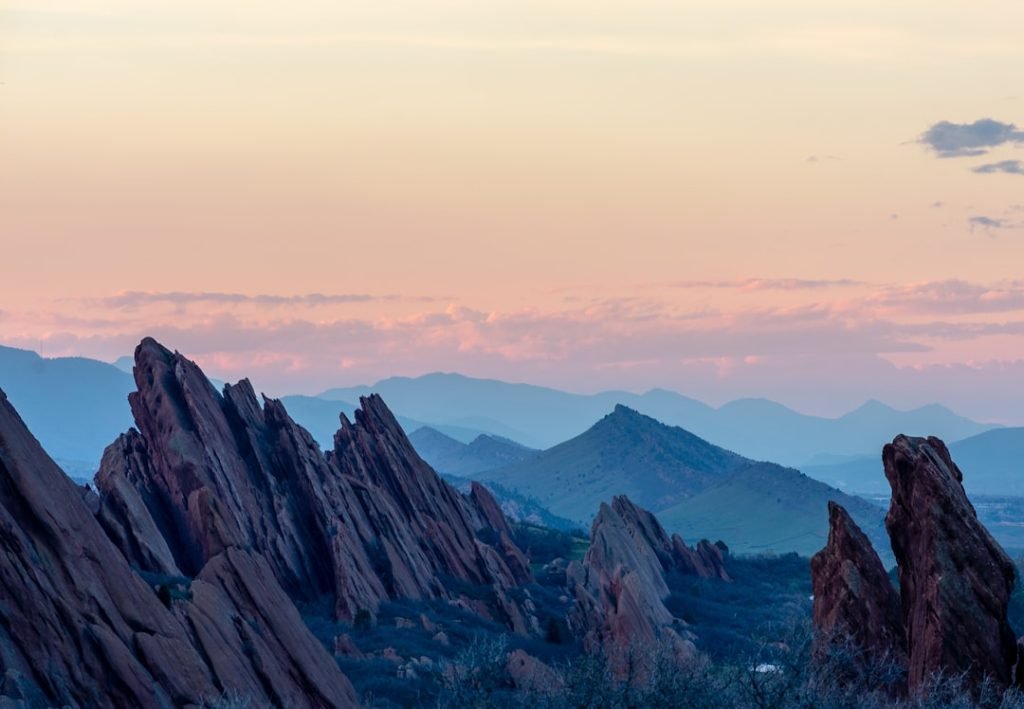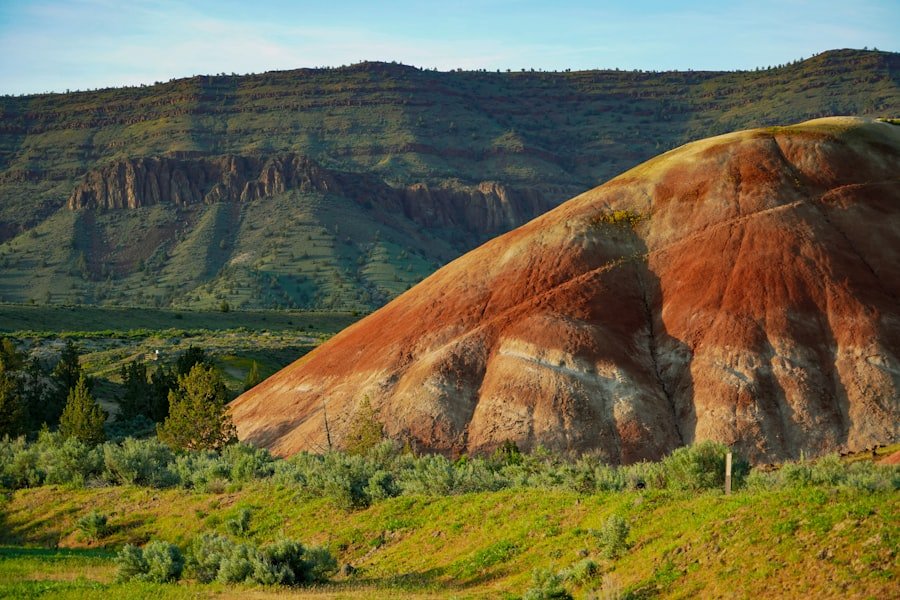

Building Norwegian Vocabulary in Geology and Earth Sciences
Learning a new language can be a valuable asset for students studying geology and earth sciences, especially when it comes to Norwegian. Norway is known for its rich geological history and its contributions to the field of earth sciences. By learning Norwegian, students can enhance their understanding of the subject matter and open up new career opportunities. In this blog post, we will explore the importance of learning Norwegian for geology and earth sciences students, discuss the different types of Norwegian language classes available, provide tips for learning Norwegian vocabulary in the context of geology and earth sciences, and highlight the best resources for building Norwegian vocabulary.
Table of Contents
ToggleImportance of Learning Norwegian for Geology and Earth Sciences
Norway has a significant role in the field of geology and earth sciences. The country is home to stunning landscapes, including fjords, mountains, and glaciers, which provide a natural laboratory for studying geological processes. Norway also has a wealth of natural resources, such as oil and gas reserves, which require expertise in geology and earth sciences for exploration and extraction.
By learning Norwegian, geology and earth sciences students can gain a deeper understanding of the subject matter. Many scientific papers and research studies in these fields are published in Norwegian or have Norwegian authors. Being able to read and understand these publications can provide valuable insights and contribute to a student’s knowledge base.
Furthermore, learning Norwegian can open up new career opportunities for geology and earth sciences students. Norway has a strong job market in these fields, with many companies and research institutions actively seeking professionals with expertise in geology and earth sciences. Having language skills in Norwegian can give students a competitive edge when applying for jobs or research positions in Norway.
Norwegian Classes for Geology and Earth Sciences Students
There are several options available for geology and earth sciences students who want to learn Norwegian. Many universities offer language courses specifically tailored to the needs of students in these fields. These courses focus on building vocabulary and language skills related to geology and earth sciences, allowing students to apply their language learning directly to their studies.
In addition to university courses, there are also online language learning platforms that offer Norwegian courses for geology and earth sciences students. These platforms provide interactive lessons, practice exercises, and resources that can be accessed at any time, making it convenient for students to learn at their own pace.
Benefits of Taking a Norwegian Course for Geology and Earth Sciences
Taking a Norwegian course specifically designed for geology and earth sciences students offers several advantages. Firstly, it allows students to focus on building vocabulary and language skills that are directly relevant to their field of study. This targeted approach ensures that students are learning the most useful and practical words and phrases that they will encounter in their studies and future careers.
Secondly, taking a Norwegian course can improve a student’s communication skills. Being able to effectively communicate with colleagues, professors, and researchers in Norway can enhance collaboration and facilitate the exchange of ideas. It also allows students to participate in conferences, seminars, and workshops conducted in Norwegian, further expanding their knowledge and networking opportunities.
Lastly, learning Norwegian can improve a student’s cultural understanding. Language is deeply intertwined with culture, and by learning the language of a country, students gain insights into its history, traditions, and values. This cultural understanding can be invaluable when conducting research or working in Norway, as it allows students to navigate social situations with ease and respect.
Best Norwegian Language Schools for Geology and Earth Sciences Students
There are several top Norwegian language schools that cater specifically to geology and earth sciences students. These schools offer specialized courses that focus on building vocabulary related to the field and provide opportunities for practical application of language skills.
One such school is the University of Oslo’s International Summer School. They offer a course called “Norwegian for Geology and Earth Sciences,” which is designed for students who want to improve their Norwegian language skills in the context of geology and earth sciences. The course covers topics such as geological formations, plate tectonics, and natural resource exploration.
Another option is the Bergenstestkurs language school, which offers a course called “Norwegian for Geologists.” This course is specifically tailored to the needs of geology students and covers topics such as mineralogy, petrology, and sedimentology. The school also provides opportunities for field trips and practical exercises to reinforce learning.
Tips for Learning Norwegian Vocabulary in Geology and Earth Sciences

Learning a new language can be challenging, but with the right techniques and resources, it can be an enjoyable and rewarding experience. Here are some practical tips for geology and earth sciences students looking to improve their Norwegian language skills:
1. Immerse yourself in the language: Surround yourself with Norwegian as much as possible. Listen to Norwegian music, watch Norwegian movies or TV shows, and try to incorporate Norwegian into your daily life.
2. Practice speaking: Find a language exchange partner or join a conversation group where you can practice speaking Norwegian with native speakers. Speaking the language regularly will help improve your pronunciation and fluency.
3. Use flashcards: Create flashcards with Norwegian words and their English translations. Review them regularly to reinforce your vocabulary knowledge.
4. Read scientific papers in Norwegian: Start by reading abstracts or summaries of scientific papers in your field of study. As you become more comfortable, try reading full papers to improve your reading comprehension.
5. Take advantage of online resources: There are many online resources available for learning Norwegian vocabulary in geology and earth sciences. Websites like Memrise and Duolingo offer interactive lessons and quizzes that can help you build your vocabulary.
Common Norwegian Words and Phrases Used in Geology and Earth Sciences
Here are some frequently used Norwegian words and phrases in the field of geology and earth sciences:
1. Bergart – rock
2. Jordart – soil
3. Fjell – mountain
4. Skred – landslide
5. Jordskjelv – earthquake
6. Vulkan – volcano
7. Isbre – glacier
8. Mineral – mineral
9. Sediment – sediment
10. Grunnvann – groundwater
Practical Applications of Building Norwegian Vocabulary in Geology and Earth Sciences
Having Norwegian language skills can be applied in various real-world scenarios in the field of geology and earth sciences. For example, if you are conducting research in Norway, being able to communicate with local experts and access Norwegian resources can greatly enhance your research capabilities.
Additionally, if you are working for a company that operates in Norway, having language skills in Norwegian can improve your communication with colleagues and clients, as well as your understanding of local regulations and practices.
Furthermore, if you are interested in pursuing a career in academia, being able to read and understand Norwegian scientific papers can give you a competitive edge when applying for research grants or publishing your own work.
Resources for Building Norwegian Vocabulary in Geology and Earth Sciences
There are several resources available for geology and earth sciences students looking to improve their Norwegian language skills. Here are some of the best resources:
1. Textbooks: There are several textbooks available that focus specifically on learning Norwegian vocabulary in the context of geology and earth sciences. These textbooks provide exercises, vocabulary lists, and grammar explanations to help students build their language skills.
2. Online courses: Platforms like Coursera and Udemy offer online courses that focus on learning Norwegian vocabulary in specific fields, including geology and earth sciences. These courses provide interactive lessons, quizzes, and assignments to help students practice their language skills.
3. Language exchange programs: Joining a language exchange program can be a great way to practice speaking Norwegian with native speakers. These programs pair you with a language partner who wants to learn your native language, allowing you to practice speaking and listening skills in a conversational setting.
4. Language learning apps: Apps like Babbel and Rosetta Stone offer Norwegian language courses that can be accessed on your smartphone or tablet. These apps provide interactive lessons, vocabulary exercises, and pronunciation practice to help you build your language skills on the go.
Improving Your Geology and Earth Sciences Knowledge with Norwegian Language Skills
In conclusion, learning Norwegian can be a valuable asset for geology and earth sciences students. Norway’s significant role in the field, coupled with the country’s natural resources and geological landscapes, make it an ideal place for students to study and conduct research. By learning Norwegian, students can enhance their understanding of the subject matter, improve their communication skills, and open up new career opportunities. With the resources and tips provided in this blog post, geology and earth sciences students can start building their Norwegian vocabulary and take their studies to new heights.
If you’re looking to expand your Norwegian vocabulary in the field of geology and earth sciences, you may also find this article on “How to Talk About Science in Norwegian: A Beginner’s Guide” helpful. It provides essential vocabulary and phrases related to scientific topics, making it a valuable resource for anyone studying or working in this field. Check it out here.
FAQs
What is the article about?
The article is about building Norwegian vocabulary in the field of geology and earth sciences.
Why is it important to learn Norwegian vocabulary in geology and earth sciences?
Learning Norwegian vocabulary in geology and earth sciences is important for those who want to work or study in Norway or with Norwegian colleagues. It also helps in understanding Norwegian research papers and publications in the field.
What are some common Norwegian words used in geology and earth sciences?
Some common Norwegian words used in geology and earth sciences include bergart (rock), fjell (mountain), bre (glacier), jordskjelv (earthquake), vulkan (volcano), and geologi (geology).
How can I learn Norwegian vocabulary in geology and earth sciences?
You can learn Norwegian vocabulary in geology and earth sciences by taking language classes, using language learning apps, reading Norwegian research papers and publications, and practicing with Norwegian colleagues or friends.
Are there any online resources available for learning Norwegian vocabulary in geology and earth sciences?
Yes, there are several online resources available for learning Norwegian vocabulary in geology and earth sciences, such as Duolingo, Memrise, and Babbel. You can also find Norwegian geology and earth sciences glossaries and dictionaries online.
If you want to learn Norwegian, you can register for classes here. We look forward to hearing from you and helping you become fluent in Norwegian.





